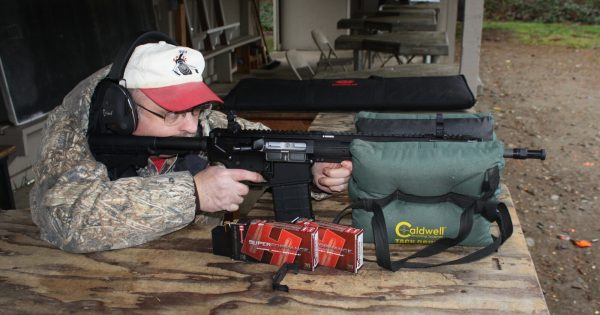
A settlement in the long-running case of Sharp v. Becerra, a California case involving a botched computer program ostensibly designed to allow online registration of so-called “assault weapons” has been reached, according to the Second Amendment Foundation, one of the plaintiffs in the case.
SAF announced the settlement Monday.
The case dates back to 2016, when the California Legislature created a new “assault weapon” classification requiring registration. But a problem with the online registration process preventing gun owners from actually complying before the July 1, 2018 deadline was quickly discovered. As a result, an unknown number of California gun owners could not comply, so a lawsuit was filed by several parties including SAF, the Firearms Policy Coalition, Calguns Foundation, Firearm Policy Foundation and the Madison Society Foundation, along with several private citizens.
According to SAF founder and Executive Vice President Alan Gottlieb, “Under this agreement, California must reopen the registration process for all individuals who possessed eligible firearms, and reimburse all plaintiffs.”
He said California DOJ is required to announce the re-opened registration period far in advance and provide notice to other known gun rights groups and law firms.
“This requirement especially applies to every person who called or emailed the DOJ to complain about being unable to register before or after the original deadline,” Gottlieb said. “The department must also conduct an outreach campaign to notify the public about the reopened registration period.”
When the problem was first discovered, he recalled that “hundreds of people” actually contacted California DOJ to seek technical assistance.
“We’re talking about a system breakdown that shouldn’t have happened,” Gottlieb observed. “I’d call this an embarrassing loss and a huge setback for California gun control overall.”
Under terms of the agreement, all of the plaintiffs will recover their legal expenses and more importantly, thousands of honest California citizens will be able to comply with the law. DOJ must give gun owners 120 days’ advance notice that the system is re-opening.
“The department must also accept paper submissions as an alternative,” Gottlieb noted, “on a form that gets the information required by the online registration process. It’s important that California DOJ under Xavier Becerra had to acknowledge its registration website was something of a disaster.”
Perhaps the best result of the lawsuit was that it likely prevented gun owners from being prosecuted for violating the new law, and having their firearms confiscated, Gottlieb said.